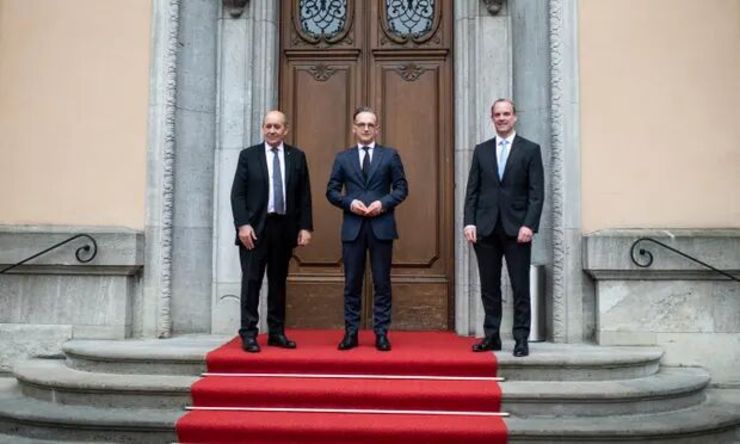In an interview with the website of the Strategic Council on Foreign Relations, Morteza Makki stressed that the European governments, in fulfilling their commitments, had not taken any action against the US withdrawal from the JCPOA, and noted: But this political will existed among them to maintain the agreement and not take any action against it.
According to the expert, in the two resolutions raised at the UN Security Council, one on the extension of arms embargo on Iran and the other on the implementation of the trigger mechanism, we witnessed that the Europeans abstained and prevented the advancement of the US policies.
Makki continued: Those countries knew that playing on Trump’s field could have dangerous consequences for them and for their policies in the Middle East, and were waiting for the 2020 US presidential elections to bring about development in this regard and increase their soft power and manoeuvrability.
The expert on Europe affairs further noted: Joe Biden’s victory in the US presidential elections provided an opportunity for European governments to use their soft power and multilateral policies for the advancement of their political targets.
He stressed: Therefore, we saw that with the final results of the US elections and Biden’s arrival into the White House in January 2021, the European capitals reasserted their previous positions and sought to ensure that the gains of the US withdrawal from the JCPOA would not be lost. In other words, the Europeans are seeking to put more pressure on Iran through Biden’s multilateral policies and to put issues beyond the nuclear deal on the agenda of their talks with Tehran. This is something that German Foreign Minister Heiko Maas explicitly stated and the foreign ministers of Britain, France and Germany also mentioned it in a joint statement.
Makki believes that European ministers do not want Joe Biden to return to the JCPOA immediately without making any concessions, but want the US president-elect to gain new concessions and force Iran to negotiate the regional issues and missile capabilities as well and address the concerns that those countries envision.
The expert also elaborated on Iran’s position and said: The Islamic Republic of Iran, on the other hand, has always emphasized that the JCPOA cannot be renegotiated and that the issue of JCPOA is limited to the same nuclear program of Iran. Tehran has also implicitly pointed out that there is a possibility of discussing other issues if the European and the American governments return to their commitments in the JCPOA.
Makki continued, however, that until Biden has not entered the White House and implemented his policies no comment can be explicitly made in this regard.
He stressed: The last position that the Americans have taken so far is the position of Jake Sullivan, Biden’s National Security Adviser, who has emphasized Washington’s desire to return to the JCPOA.
Regarding the current stance of the European governments, Makki said it seems that those countries want to continue to pursue the positions that existed during the negotiations over the JCPOA. At that time, we witnessed that the then French foreign minister was trying to include non-nuclear issues in the negotiations with Iran.
He added: At the time when the JCPOA was reached, in fact, Iran and the United States continued negotiations and did not pay any attention to the remarks of the then French foreign minister.
In response to the question that it seems Iran’s strategic patience is coming to an end and that what policy Tehran should pursue in future, he said: Given the positions that have been taken by the US Democratic administration, we now have to wait and see with what mechanism and speed Biden and his group will return to the JCPOA.
He emphasized: The Islamic Republic of Iran, during the time when the United States withdrew from the JCPOA, tried to maintain the JCPOA in a state of coma through its strategic patience and step-by-step policy in reducing its obligations in return for the Europeans unfaithfulness. Because the JCPOA can still be a basis for lifting economic sanctions against the Islamic Republic of Iran.
In conclusion, Makki referred to the point that the United States, through unilateral economic sanctions against Iran, could force most countries of the world to withdraw from trade and economic agreements and cooperation with Iran and blocked the Islamic Republic’s money in many world banks and said: No doubt, the JCPOA and victory of the Democrats in the United States is an opportunity that should not be missed.










0 Comments